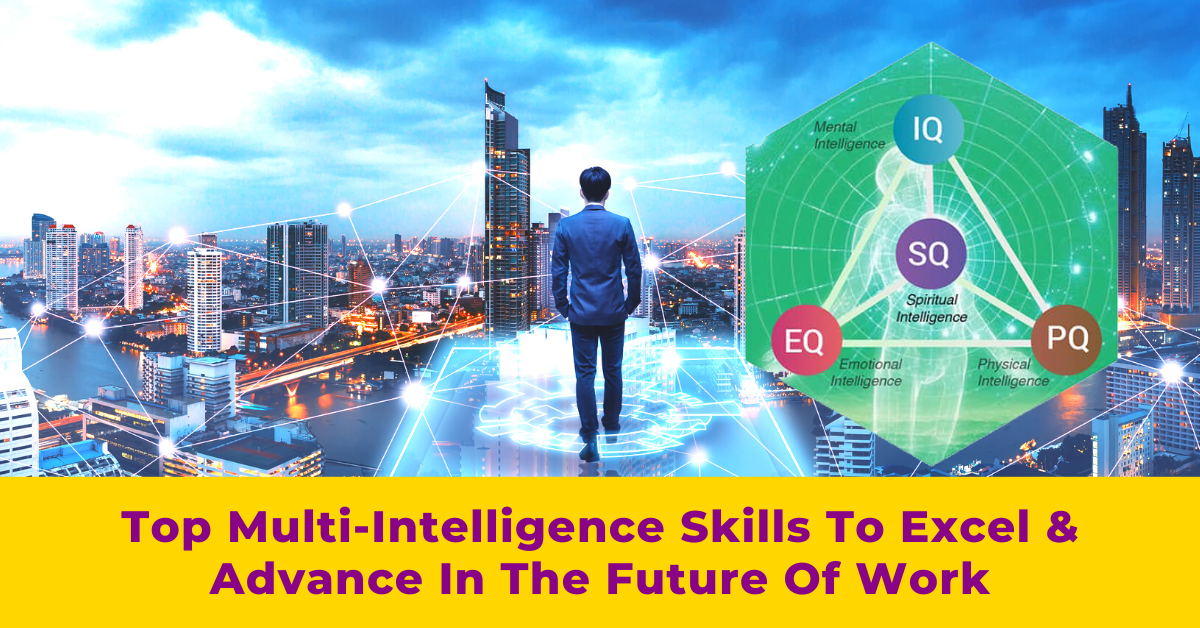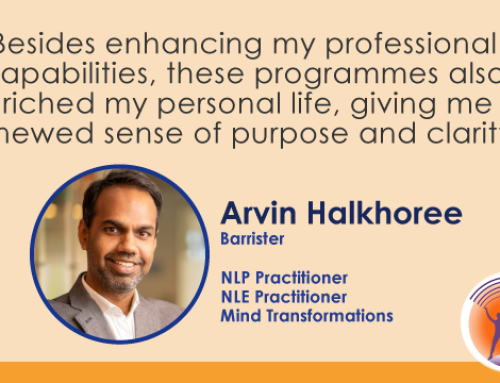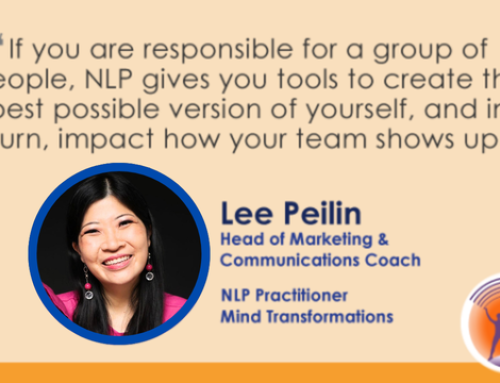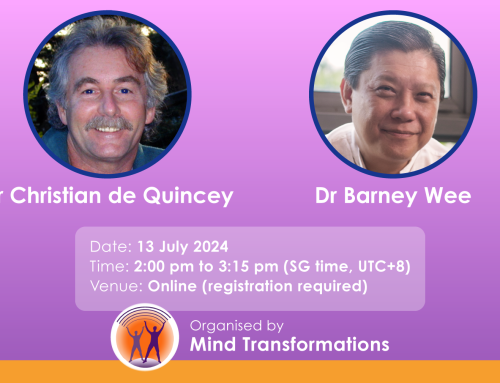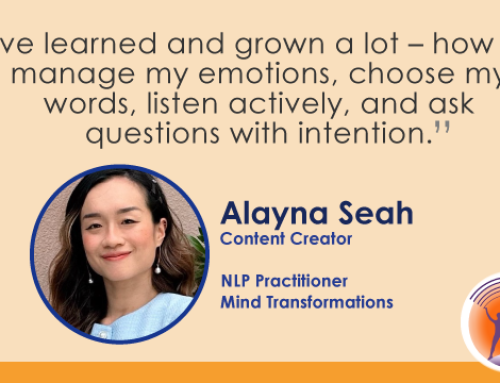This article answers these questions:
Background: What’s the state of our world?
As of 2022, what we are seeing daily in our world is the uncertainty of President Putin’s plans to annex Ukraine; the volatility of floods and fires, shortages of food caused by climate change; the rapid changes and complexities involved in AI advancements that impact the way we work and make things; and the blurry ambiguities we feel when we work in the post-pandemic world ahead of us.
The descriptions above are now encapsulated by a concept called VUCA1 coined by the U.S. army in the 80s, at the end of the Cold War. The spontaneous skills that have emerged out of these turbulent times include: our abilities to change our priorities and schedules; plan a course of actions within a short time; visualize bad scenarios and get alternate plans ready; collaborate with people who have the strengths that we lack; manage different stakeholders with conflicting needs; juggle and massage multiple sets of data to understand what we are dealing with; and moving out of paralysis or shock more quickly so that we can function.
Snapshot
Spontaneous (not fully conscious) skills have emerged out of our turbulent times, and experts of many disciplines are still reeling from the onslaught of disruptive changes.
Experts in different fields (World Economic Forum, McKinsey Consultants, prominent OD-HR-LD Practitioners, Universities etc.), are still reeling from the onslaught of these disruptive changes environmentally, economically, technologically, politically, and socially. No one has the final word on what to do, the best way to move forward, nor a simple explanation to put these VUCA elements into neat boxes. Experts on VUCA have also highlighted the importance of being able to act without full information and learn from failures effectively.
It is against this backdrop that Mind Transformations asks, “What kind of nervous system would thrive in this VUCA world?” This question led us to 9 months of research to come up with a framework and understanding of how we can help ourselves and others better respond to the demands of the VUCA world. While there are new apps and software that we need to quickly learn to stay effective in this rapidly changing digital world, we also find that there are basic essences in Neuro-Linguistic Programming2 (NLP) that explain how our nervous system produces complex adaptive behaviors. After all, the operating system of NLP is its deep understanding of how our nervous system produces effective and ineffective behaviors, through modeling experts in different fields.
As mentioned earlier, these “spontaneous” skills that emerged to respond to VUCA situations are “yet to be fully conscious” skills. The world is still too busy to unpack these new complex skills. One of the meta-skills that NLP discovered in modeling is the art and science of turning the not fully conscious skills in experts into inner and outer verbal and non-verbal strategies. Hence the expression “NLP is the art and science of turning excellence into strategic thinking, feeling and actions.” At Mind Transformations, we strive to turn these strategic thinking, feeling and actions into Neuro-Actionables, i.e. a framework of linguistic expression that our nervous system can easily understand and execute.
Snapshot
NLP lands itself in a unique position to understand the “not fully conscious” VUCA skills—as its strength is in translating excellence into psychologically repeatable skills
Snapshot
An important strength in NLP is turning an “abstractly named skill”—like collaborating with people—into mental, verbal, emotional and behavioral processes. Without which, an important skill remains a “string of words.”
This is an important strength in NLP—that is to turn a named skill (e.g., ability to collaborate with people) into mental, verbal, emotional and behavioral processes. Without it, an important skill remains a “string of words” which may be profound and inspiring, but may not produce an effective performance. With information easily accessible today, many people know a lot about a wider range of topics, but that does not mean people automatically know how to turn that information (head knowledge) into effective behaviors—at the right time, in the right place. So, this strength of NLP is critically important to people in the digital age.
The notion of “knowing” is traditionally pegged to something that occurs in the head (brain). But with recent scientific discoveries3, it has created a paradigm shift in our understanding of where “knowing” takes place in our bodies. It is now proposed that there are at least three ways of knowing, not just in our heads (cephalic), but also in our hearts (cardiac) and guts (enteric). If we consider the notion of knowing how to sense and respond to situations as a form of intelligence, then we can say that there are at least 3 forms of intelligence: mental, emotional, and physical intelligence. In other words, today’s understanding of intelligence is not single, it is multiple.
Snapshot
“Knowing” is traditionally pegged to something that occurs in our heads, but now science has proposed at least three different places in our bodies where “knowing” can take place.
Snapshot
Over 25 years Mind Transformations has come to understand and appreciate the power of multiple intelligence—its significance in improving & raising human performance.
Mind Transformations (MT) has served South-East Asia for 25 years, and in its continual research and using NLP, they have come to appreciate the wisdom of “multiple intelligence4”—first coined by Dr Gardner of Harvard University in 1987. Among the many practical insights that MT gained from integrating multiple intelligence into NLP is that intelligence is not just in the head (IQ), and more powerful performance is possible when we integrate our emotional (EQ), physical (PQ) and spiritual intelligence (SQ), i.e., our ability to expand our self-awareness and connect to our higher purpose. According to Zohar & Marshall, SQ examines our meaning-making, contextualizing and transformative intelligence5.
Within the limited space of this article, Mind Transformations’ Multi-Intelligence NLP6 can be broadly stated in the following manner:
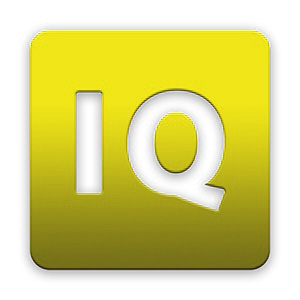
Outcome framing, sort information logically, listening insightfully, asking powerful questions, conversationally influence others, chunking information and conveying it optimally, critical and creative thinking, seeing and understanding situations with different viewpoints, correlate and integrate different sets of data, concretely visualize, plan and adapt ahead, and proactively expanding our digital literacy.
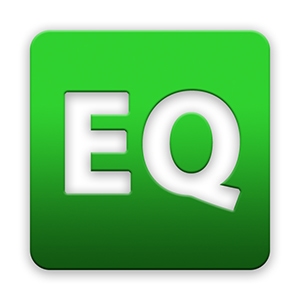
Emotionally sensing and responding to others, managing one’s own negative emotions and states connected to our judgements, summoning and holding resourceful emotions in different contexts, connecting and relating to different individuals and groups, holding multiple conflicting emotions together to facilitate cooperation, tapping into the deeper message of emotions and addressing it appropriately.

Orchestrating our breathing and physiology to think and feel better, progressively train our body to respond appropriately to unfamiliar situations, proactively work on shortening our time between thinking and acting, sharpening our senses to pick out useful information in any situation, consciously working towards integrating internal knowing and external sensing.

Proactively seeking to understand one’s own strengths and weaknesses (often through some form of profiling) aka self-mastery, develop a longer term plan to challenge themselves to grow (bringing forth a better version of themselves), develop a mindfulness practice to examine their assumptions and make better decisions, to actively explore the relationship between their gifts, roles in life and connection to the larger systems they are in (family, organization, community, country, humans at large, other living systems, planetary, cosmos). Ultimately, SQ houses our capacities to be resilient, purposeful and wise.
A large portion of the above-mentioned skills are unconscious to many people. The lack of awareness, under-utilization, lack of education, distrust, or outright fear of the unfamiliar—stops people from fully utilizing what they are born with. These multiple intelligences are inherent within us, some are more developed or perhaps innately stronger, nevertheless they are seen by neuroscientists and psychologists as capabilities and capacities that we can develop and integrate. Mind Transformations’ Multi-Intelligence NLP (MI-NLP) fully supports this premise, and they have seen results in their work with countless individuals and organizations.
Snapshot
Mind Transformations has strategically streamlined Dr Gardner’s (Harvard) 8 intelligences into 4 Core Integrated Intelligences, namely Mental (IQ), Emotional (EQ), Physical (PQ) & Spiritual (SQ). Within each intelligence is contained specific NLP mindsets and skillsets.
Snapshot
The unawareness, under-utilization, lack of education, distrust, or outright fear of the unfamiliar (multi-intelligence) stops people from fully utilizing what they are born with.
In MT’s continuous journey to serve its customers, they first strive to bring awareness to people, for people can’t change or utilize what they are not aware of. Followed by helping their customers to expand their understanding and appreciation of multiple intelligences by creating a safe and rich learning environment. Through teaching, demonstration and well-crafted experiential activities, customers begin to experience practical new ways to get results. Through post course group collaboration and facilitation, customers get to execute and follow through their MI-NLP in their personal and professional lives. To reiterate, the strength of NLP is turning a named skill into mental, verbal, emotional and behavioral processes, so that a skill does not remain a “string of words” but is turned into neuro-actionables that produce behavioral change and results.
To give weight to the relevance of MI-NLP knowledge and skills in the age of VUCA, this article taps into the academic research (released in June 2021) done by McKinsey Global Institute7 that spans across 15 countries and 18,000 people. They uncovered 4 broad skills and 13 specific skills that will help all people to have a higher likelihood of employment, higher income and job satisfaction in the post-Covid-19 world, which is also the world of the 4th Industrial Revolution, therefore VUCA.
Snapshot
A large part of Mind Transformations’ work is to spark awareness of new possibilities in people, followed by expanding their understanding—so that new choices can emerge. They then actively support people to execute their new choices so that the change people seek—can happen.
In broad strokes, here are the 4 broad and 13 specific skills:
- Cognitive: Critical Thinking, Planning Ways of Working, Communication, and Mental Flexibility
- Interpersonal: Mobilizing System (within self and others), Developing Relationships, Team effectiveness & Collaboration
- Self-Leadership: Self-Awareness and Self-Management, Entrepreneurship, Goals Achievement & Grit
- Digital: Digital Fluency and Citizenship, Software Use and Development, Understanding Digital Systems
Note: Within each of the 13 specific skills there are several delta-skills, amounting to a total of 56 delta-skills (for the purpose of brevity they are not listed here).
Snapshot
McKinsey’s 56 Delta-Skills that support “Future of Work” are closely correlated to Mind Transformations’ mindset and skillset training in Multi-Intelligence NLP.
In the area of employment, the broad, specific and delta-skills most related are: Cognitive—mental flexibility—adaptability; Cognitive—communication—synthesizing messages; Self-Leadership—goals achievement—achievement orientation; and Self-Leadership—coping with uncertainty. In Mind Transformations’ MI-NLP terms, it corresponds to IQ, PQ & SQ: “seeing and understanding situations with different viewpoints,” “correlating and integrating different sets of data,” “outcome framing, concretely visualize, plan and adapt ahead,” “progressively train our body to respond appropriately to unfamiliar situations,” “chunking information and communicating it optimally” and “developing resilience and self-trust.”
In the area of high income, the broad, specific and delta-skills most related are: Cognitive—planning ways of working—workplan development; Cognitive—communication—asking the right questions; Self-Leadership—self-management—self-confidence; and Interpersonal—mobilizing systems—organizational awareness. In Mind Transformations’ MI-NLP terms, it corresponds to IQ & EQ: “correlate and integrate different sets of data,” “outcome framing, concretely visualize, plan and adapt ahead,” “asking powerful questions,” “summoning and holding appropriate emotions in different contexts,” “connecting and relating to different individuals and groups,” and “conversationally influence others.”
In the area job satisfaction, the broad, specific and delta-skills most related are: Self-Leadership—Self-Awareness—Self-Motivation & Wellness; Self-Leadership—Goals Achievement—Coping with Uncertainty; and Self-Leadership—Self-Awareness—Self-Confidence. In Mind Transformations’ MI-NLP terms, it corresponds to IQ, PQ, SQ & EQ: “develop a longer-term plan to challenge themselves to grow (bringing forth a better version of themselves),” “orchestrating our breathing and physiology to think and feel better,” “progressively train our body to respond appropriately to unfamiliar situations,” “developing resilience and self-trust,” and “summoning and holding appropriate emotions in different contexts.”
Not surprisingly, “self-confidence” and “coping with uncertainty” are two delta-skills ranked top of the three outcome areas (employment, income and job satisfaction) by McKinsey’s research team. They defined “self-confidence” as the quality of trusting one’s own abilities and judgements, and “coping with uncertainty” as the ability to operate effectively in situations with high uncertainty. In MI-NLP, challenges are seen as lessons to be learnt, involving the skills of recoding and re-chunking information obtained through sensory observation and framed as solutions to move forward. Getting into the right state to execute an improved plan and learn from it, is the hallmark of an exquisite NLP practitioner. The ability to observe one’s own thoughts and feelings, and examine our assumptions of the unknown to make better decisions, is another MI-NLP process of intention setting and self-acknowledgement.
Snapshot
Not surprisingly, the two top delta-skills ranked by McKinsey’s academic research are “Self-Confidence” and “Coping with Uncertainty” — which are the hallmarks of Mind Transformations’ MI-NLP training involving state management and the process of turning failure into feedback.
Snapshot
McKinsey’s research asserts that the 56 delta-skills (mostly soft-skills) are more important than occupation-based qualification in the future of work.
In McKinsey’s research, they proposed that adult-training systems be reformed. In their extensive online search on adult-training programs, they found courses on developing self-leadership, self-awareness and self-management 20 times less common than those advocating the improvement of communication skills. Many Organization Development experts assert that occupation-based qualifications run the risk of becoming outdated as the VUCA world demands new skills. Hence skills-based accreditation may better suit employers. Especially when adult-training bodies develop programs that cover the delta-skills mentioned in their research.
It is clearly shown here that Mind Transformations’ MI-NLP programs are well-suited to train and empower working adults with the “delta-skills” that McKinsey is advocating. These “soft skills” (non-occupation-based) are crucial future-fit skills for all working adults today. Another important set of skills that is not mentioned so far is Digital proficiency, and it is highly correlated to high income. At Mind Transformations, the usage of virtual applications, such as virtual survey and feedback, virtual written exercises, google doc, virtual demonstrations and practices in zoom classes are intensifying and improving from class to class. At Mind Transformations, we fully acknowledge that the digital world has changed the way we think and live our lives, and it is important for us to expand our digital literacy and usage.
Snapshot
Clearly shown here, Mind Transformations’ MI-NLP programs are well-suited to empower working adults with future-fit skills, crucial to thriving in the VUCA world.
Through 5 compact days for Multi-Intelligence NLP
Addresses the demands of our VUCA world
Includes the skills mentioned in McKinsey’s “Future of Work”
To find out more, talk to us at +65 8186 7508 or email us at info @ nlpsgasia.com
References:
1. What is VUCA | VUCA use and history
https://www.techtarget.com/whatis/definition/VUCA-volatility-uncertainty-complexity-and-ambiguity
2. What is NLP?
http://www.nlpu.com/NLPU_WhatIsNLP.html
3. Head, Heart, and Gut: The three brains that control our intuition
https://invisible-edgellc.com/head-heart-gut/
4. Gardner’s Theory of Multiple Intelligence
https://www.simplypsychology.org/multiple-intelligences.html
5. SQ: Connecting with our Spiritual Intelligence
https://www.spiritualityandpractice.com/book-reviews/view/2081/sq
6. Mind Transformations’ Multi-Intelligence NLP | Coaching Beyond Logic
https://www.mindtransformations.com/blog/multi-intelligence-nlp-coaching/
7. Defining the skills citizens will need in the future world of work https://www.mckinsey.com/industries/public-and-social-sector/our-insights/defining-the-skills-citizens-will-need-in-the-future-world-of-work

